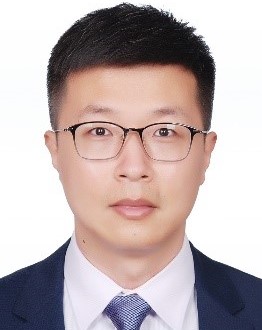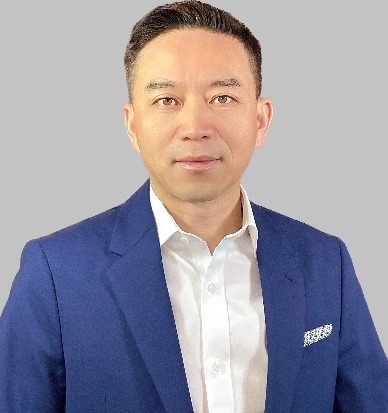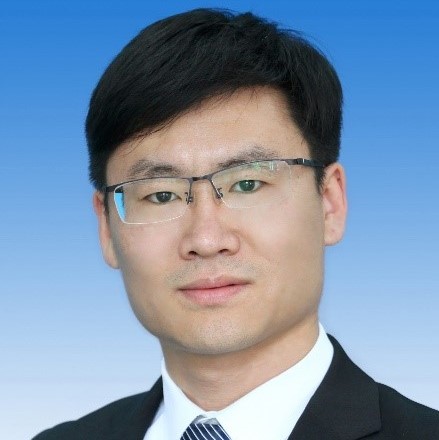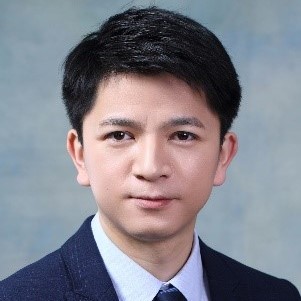Keynotes
#1 PHM - A Historical Perspective and Projection of Future Challenges
Abstract:
The management of product life cycles and the development of maintenance strategies for electronics and mechanical systems have been the subject of research over the past century. The discipline of prognostics and health management (PHM) is currently one of the hottest topics in the reliability engineering global community, and has evolved into a focal point for such topics as condition-based maintenance, proportional hazards modeling and product lifecycle and residual useful life management. Recent advances in the areas of data science and artificial intelligence have fueled further interest in developing advanced methods using big data and internet of things (IoT) technologies.
In this presentation we look at some key historical milestones in the development of the PHM discipline and propose areas of future interest and challenges seen through the lens of IEEE and the IEEE Reliability Society and its numerous initiatives and scientific publications that have helped shape this discipline over the past 75 years.
Bio:

Dr. Christian K. Hansen is department chair and professor of statistics in the Department of Mathematics at Eastern Washington University (EWU) and served as President of the IEEE Reliability Society (2014-2016). He is been a faculty member at EWU since 1993 and served in a variety of academic and administrative leadership positions. He has been active in the reliability profession for over 30 years and published broadly on a variety of engineering applications, mostly related to reliability modeling and failure data analysis for complex electronic systems. Over the past two decades he has been active with the IEEE Reliability Society and has served in leadership positions that include vice-president of publications, treasurer, president and most recently as vice-president for meetings and conferences. Dr. Hansen is a graduate of the Technical University of Denmark with degrees in Electrical Engineering (MS, 1988) and Statistics (PhD, 1991).
#2 The mechanism and control of nanoscale friction behavior on graphene surface
Abstract:
The technology of superlubricity not only can reduce friction by several orders of magnitude, but also can decrease wear and friction noise, and thereby increase the reliability of mechanical equipment. Two-dimensional (2D) layered materials, represented by graphite/graphene, are excellent solid lubricants. Utilizing these materials to create lubricant coatings is considered as an important method for achieving superlubricity in practical engineering. 2D layered material lubricant coatings are composed of numerous thin flakes. Therefore, the coating surface consists of basal planes and step edges with completely different physical and chemical properties. To understand the friction behaviors of different regions, this study investigated the friction mechanism and control methods on both graphene basal planes and step edges with atomic force microscopy. By revealing the friction mechanisms of graphene basal planes and step edges, along with the friction reduction methods, this work is of instructive significance for 2D layered material lubricant coating design and fabrication.
Bio:

Zhe Chen, Professor and Ph.D. Supervisor in the School of Mechanical Engineering, Zhejiang University. He is a selected participant of the National Overseas High-Level Talents Introduction Plan. His research focuses on the fields of tribology and surface/interface science and technology. His research interests encompass topics such as superlubricity mechanisms and technologies, micro/nanotribology, nanolubricants, and atomic manufacturing. He has published over 30 SCI papers in journals including Science Advances. He has been honored with Wen Shizhu Maple Leaf Award, Hiwin Doctoral Dissertation Award, High Impact Paper Award from CJME, First Award Winner of Young Scholar Poster at STLE Tribology Frontiers Conference, and so on. He has been leading research projects including National Key R&D Program Task and Zhejiang Province Key R&D Program.
#3 Securing the Future of Surgical Robotics
Abstract:
This presentation introduces the integration of systems engineering principles into the field of surgical robotics, aiming to excel in this competitive and dynamic market. It presents the overall systems engineering principles and practices, explores the potential benefits and challenges of applying these methodologies at various phases of the product development. The talk highlights the importance of balancing the complex interactions between various components, stakeholders and processes involved in surgical robotics, and to maximize the overall system performance, safety, reliability.
This presentation discloses valuable insight from the industry’s experience in overcoming headwinds and secure the success of robotics development. It also points out opportunities for future research to explore.
Bio:

Wei Zhang currently is the Senior Director of Systems Engineering, spearheads the surgical robotics development at Smith & Nephew. He has accumulated wealthy experience in research & development, Systems Engineering, Reliability, Manufacturing and Design for Six Sigma. Wei transitioned from a reliability technical fellow into a people leader, successfully leading various process improvement, business transformation and talent development. He is also a frequent speaker at international conferences, and serves as an IEEE Systems Council Advisory Committee member.
#4 Is “smartness” sustainable? - Open issues on the Smart Sustainable Manufacturing Paradigm
Abstract:
Information is the cornerstone of the society to come and the same is for manufacturing, which has been since a long time a fundamental of the national development and prosperity.
Information is the way we interpret the world surrounding us; it may have different forms according to our perception: data, procedures, experience and even wisdom. Independently of its form, reality is made of information at the present time to the limit where information can model the reality or be the reality itself: virtualisation is just one trivial example of such a statement.
In this light, the major issue of sustainable manufacturing activities is the management of useful information, which may determine the success of this vision. To give an example, the way we choose data for measuring a phenomenon may strongly change the perception of its nature and influence. Thus sustainability, which is an emerging paradigm in manufacturing, is now leading the most of the scientific efforts in defining the assessment of sustainability and the collection of significant measures of transition toward actions that satisfies the economic, environmental, social and technological targets.
Smartness paradigm in manufacturing, on the other hand, is deeply tied to the information management and use, provided the Digital Twins as well as Cyber Physical Systems are mostly based on data get from sensing systems and on their elaboration to predict the evolution of systems simulated.
Open issues are still on the ground about the interconnections of these two paradigms: can smartness completely support sustainability or there are other advanced drivers to be considered to reach sustainability in manufacturing? Is smartness the cornerstone of sustainable manufacturing or it has even implicit drawbacks in this direction? Relevant issues are emerging up to now: to cite the most critical, AI advancements are threatening workers and their jobs, pushing the humans to higher levels of expertise and flexibility.
Speculation on these issues has already started but still there is room for discussions that can be of great interest to scientists to deepen the perception of the sustainability dimensions and reflect on the future direction of our I5.0 society.
Bio:

Michele Dassisti is full professor of “Systems and Production Technologies” in the Polytechnic University of Bari, he has been Rector’s delegate since 2003 for Sustainable Development Strategies. Professor Dassisti has extensive academic and industrial research experience nurtured along several national and international research cooperation with multidisciplinary groups dating from 1988 on the following subjects: sustainable manufacturing, continuous process improvement, advanced material for manufacturing applications, smart manufacturing and additive processes, interoperability and integration of manufacturing systems, sustainable de-manufacturing processes, manufacture of storage energy-systems from renewable sources, systems for quality management and for statistical control.
Michele Dassisti successfully managed several research projects for the continuous improvement of sustainability of industrial processes with more than 20 Italian and international companies, being local scientific coordinator of Italian research funded as well as international projects .
As scientific dissemination, he has published over 200 scientific works and books (https://iris.poliba.it/). Holder of two patents deposited on the recycling of electronic waste and sustainable innovative buildings.
Michele Dassisti is strongly involved in public engagement activities, organizing dissemination events to promote the culture of continuous improvement and sustainability, running a large number of dissemination and innovation projects for sustainable development of territories.
Former founder of the Italian Pole of INTEROP-VLab.It (http://interop-vlab.eu/), he is currently responsible for the first public interuniversity laboratory in Apulia for designing and managing territorial and industrial resilience. He is also a regular member of the Technical Committee IFAC 5.3 “Interoperability and enterprise network” as well as ENBIS association.
#5 The principles of the prognostic system in healthcare
Abstract:
Personalized healthcare moves at the pace of AI and IoT technologies. Wearable sensors have enabled the discovery of prognostic multidimensional markers 24x7 and democratized access to health conditions, risk prediction, and intervention. AI and VR-powered therapy for children with Autism Spectrum Disorder (ASD) is making innovative breakthroughs. The prognostic system in healthcare empowers individuals to take proactive measures toward better health and better life. Personalized assessment, adaptive treatment, and actionable insights are the pillars. Furthermore, synthesizing time series data enables public research and data augmentation at large. The benefits and risks should be carefully balanced.
Bio:

Dr. Fang is Distinguished Service Professor at Carnegie Mellon University. She is also a seasoned and passionate researcher and entrepreneur with 20 years of experience in both the software industry and academia. Dr. Fang's research expertise lies in personalized healthcare and clinical trials, AI-based therapy for Autism Spectrum Disorder (ASD), and online audience behavior research. With multiple US patents to her name, she also serves as an associate editor for the IEEE reliability society. Dr. Fang's entrepreneurial spirit has led her to co-found two companies, including AiCare, a cutting-edge AI and cloud-powered Healthcare & Medical platform, and Apple Pi Inc., mentoring young entrepreneurs and bootstrapping startups in Silicon Valley, California. Prior to this, Dr. Fang served as Product Manager and Architect at LinkedIn, Yahoo, Bluekai (acquired by Oracle), and Sun Microsystems.
#6 Data Stream Processing at the Edge
Abstract:
With the rapid integration of massive amounts of data and proliferation of new devices (e.g., smart mobile devices, drones, Internet-of-Things (IoT), etc.), today’s network system infrastructures are being stretched to their limits. Although edge computing brings the computation closer to both delay-sensitive services and interested users, the challenges restricting the cloud model still remain. In addition, as the plethora of data generated across connected devices continues to vastly increase, the need to query the “edge” so as to derive in-time analytic insights is more evident than ever. In this talk, I will present three novel adaptive monitoring frameworks and a fog computing emulation framework. First, I will present the AdaM framework, which dynamically adjusts the monitoring intensity and the amount of data disseminated through the network based on a runtime estimation model capturing the current data evolution and variability. By accomplishing this, energy consumption and data volume are reduced, allowing IoT devices to preserve battery and ease processing at data consuming services, while still preserving accuracy. Then, I will present the ADMin framework. Rather than transmitting the entire stream, ADMin favors sending updates for its estimation model from which values can be inferred, triggering dissemination only when shifts in the stream evolution are detected. This is achieved by efficiently adapting the rate at which IoT devices disseminate monitoring streams based on run-time knowledge of the stream evolution, variability and seasonal behavior. The third framework that I will present is called ATMoN and focuses on dynamic networks. Specifically, ATMoN framework dynamically adjusts the temporal granularity graph metrics which are computed based on runtime knowledge captured by a low-cost probabilistic learning model approximating both the metric stream evolution and the runtime volatility of the graph topology. This computationally offloads graph processing engines and eases the communication overhead in edge computing networks where the wealth of data dissemination is plentiful. Next, I will present Fogify, an emulator easing the modeling, deployment and large-scale experimentation of fog and edge testbeds. Fogify provides a toolset to: model complex fog topologies comprised of heterogeneous resources, network capabilities and QoS criteria; deploy the modelled configuration and services using popular containerized descriptions to a cloud or local environment; experiment, measure and evaluate the deployment by injecting faults and adapting the configuration at runtime to test different “what-if” scenarios that reveal the limitations of a service before introduced to the public.
Bio:

Dr. Pallis received his BSc (2001) and Ph.D. (2006) degree in Department of Informatics of Aristotle University of Thessaloniki (Greece). His research interests include Cloud computing with focus on Cloud elasticity and monitoring, Edge Computing and Big Data Analytics. He is principal institutional investigator in research projects funded by EC, Research Promotion Foundation in Cyprus, and industry (e.g., Google) and has totally attracted more than 5M EUR. Dr. Pallis was one of the contributing experts for the EU Roadmap for Advanced Cloud Technologies under H2020. Dr. Pallis has published over 80 papers in international journals (e.g., IEEE TKDE, IEEE TCC, IEEE TSC, ACM TOIT etc), magazines (e.g., CACM, IEEE Internet Computing) and conferences (e.g., INFOCOM, IPDPS, ICDCS, IEEE BIG DATA etc) and he is contributor of two international DIN (German Institute for Standardization) standards. Also, he has served as PC-Co-chair of CloudCom 2018 and CCGrid 2019. Dr. Pallis has also served in numerous Program and Organization Committees for international conferences, and he received the best paper awards in the IoTDI 2022, IEEE BIG DATA 2016 and the ICSOC 2014 and the best demo award in the ACM/IEEE Symposium on Edge Computing (SEC 2020). In 2019, Dr. Pallis served as guest editor for the edge computing special issue on the prestigious Proceedings of the IEEE journal. Dr Pallis appeared in the World’s Top 2% Scientists list published by Stanford University. He is Editor in Chief in the IEEE Internet Computing magazine, Associate Editor in the IEEE Transactions on Cloud Computing and Associate Editor in the Computing Journal (Springer).
#7 Intelligent Maintenance Based on Flux Leakage Detection for Special Equipment
Abstract:
Special equipment refers to professional equipment with high potential risks to life safety. Therefore, safety is always the primary consideration in the design and usage processes of special equipment. Magnetic flux leakage detection is one of the important inspection methods for special equipment in industrial settings. It is widely used in infrastructure, military equipment, and engineering machinery such as railway tracks, oil and gas pipelines, pressure vessels, aircraft carrier arresting cables, and elevators, effectively ensuring the safe operation and usage of special equipment.
This report will introduce the physical principles and key technologies of magnetic flux leakage detection, as well as its application in intelligent maintenance of special equipment. Moreover, given the complex signal characteristics such as time-varying and non-stationary signals encountered in magnetic flux leakage detection, the report will share the latest research progress of the speaker’s research team in areas such as magnetic flux leakage signal processing and design of specialized magnetic flux leakage sensors.
Bio:

Dr. Zhiliang Liu earned a joint Ph.D. degree from the University of Electronic Science and Technology of China and the University of Alberta in 2013. Currently, he is an associate professor at the School of Mechanical and Electrical Engineering, University of Electronic Science and Technology of China. His research interests primarily revolve around intelligent maintenance for complex equipment. He holds the esteemed title of a fellow member in The International Society of Engineering Asset Management (ISEAM). Dr. Liu has authored over 100 peer-reviewed papers and one academic monograph. Moreover, he has filed more than 40 national invention patents and successfully implemented one patented technology transfer. Furthermore, Dr. Liu's dedication to scholarly publications and editorial roles is evident, as he served as a youth editorial board member for the Journal of Dynamics, Monitoring and Diagnostics, and Failure Analysis and Prevention. Additionally, he has been an associate editor for the Journal of Prognostics and Health Management. He has been invited to be an evaluation expert for the National Natural Science Foundation and is part of the National Postgraduate Education Evaluation and Monitoring expert database. In addition to his academic contributions, Dr. Liu actively participates in the international academic community by taking on program chair, publicity chair, and session chair roles in several international conferences. Apart from academia, he serves as a consultant for two companies and is recognized as an expert in the Chengdu Bureau of Industry and Information Technology.
#8 Importance measures and system reliability optimization
Abstract:
Importance measures, which are the basis and premise of system reliability optimization, are the most useful tool to find the shortness component in the complex systems. The functions of importance measures include: ① Reduce the solution complexity of system reliability optimization models; ② Find the shortness of the systems and help the preliminary decision making; ③ Improve the solving algorithm efficiency of complex system reliability optimization. Importance measures have been introduced as one of main function modules of SAS-JMP, Reliasoft, ITEM for practical engineering applications. This speech will introduce the developing history of importance measures firstly. Then, the latest innovation methods of importance measures will be discussed. Some new solving algorithms based on importance measures for system reliability optimization models are also showed thirdly. Finally, a few examples of the application for importance measures are presented.
Bio:

Shubin Si received the B.S. and M.S. degrees in Mechanical Engineering and the Ph.D. degree in Management Science and Engineering from Northwestern Polytechnical University (NPU), Xi’an, China, in 1997, 2002, and 2006, respectively.
He is currently a full Professor with the School of Mechanical Engineering (NPU) and the vice director of Ministry of Industry and Information Technology Key Laboratory of Industrial Engineering and Intelligent Manufacturing. He is also the Vice Chairman of Reliability Committee of Operation Research Society of China, the Vice Chairman of Industrial Engineering Committee of Chinese Society of Optimization, Overall Planning and Economic Mathematics, and the Senior Member of the IEEE Reliability Society and IISE Society. Now, Dr. Si serves as an Associate Editor of IEEE Transactions on Reliability, an Editor member for Journal of Systems Engineering and Electronics, and an Editor member for Frontiers of Engineering Management.
Dr. Si’s research interests include importance measures, system reliability optimization, and resilience analysis methods for complex networks. He has been the principal investigator for several key projects, like Ministry of Education New Century Outstanding Talent Project, National Nature Science Foundation of China (Key Project), Ministry of Industry and Information Technology Civil Aircraft Special Project and so on. In recent 10 years, he has published more than 100 academic papers in international journals, such as PNAS, Science China Information Sciences, Frontiers of Engineering Management, IISE Transactions, IEEE Transactions on Reliability, Reliability Engineering and System Safety, IEEE Transactions on Industrial Informatics, IEEE Transactions on Industrial Electronics, etc. He have been granted 8 Chinese invention patents and awarded with the Best Paper of 2022 IEEE Global Reliability & Prognostics and Health Management Conference, the Best Paper of 2019 IEEE Prognostics and Health Management Conference, the Best Paper of 2019 International Conference on Quality, Reliability, Risk, Maintenance, and Safety Engineering.
#9 Motor Electric Signature Analysis for Planetary Gearbox Fault Diagnosis
Abstract:
Planetary gearboxes have high gear ratio in compact structure. In industrial applications, they are often driven by electric motors, and are widely used in the drivetrain of various equipment. Planetary gearbox fault diagnosis is important for equipment operation safety, but is highly challenging because of the complex kinematics and dynamics. Compared with traditional vibration-based methods, motor electric signals can be measured anywhere along power cables, so that is free of sensor placement issue. Moreover, motor electric signals have lower complexity than vibrations, owing to the rotational symmetry of electric motor–planetary gearbox drivetrain. Therefore, motor electric signature analysis provides a promising approach to planetary gearbox fault diagnosis. In this speech, our recent research on motor electric signal analytical modelling for explicit revelation of planetary gearbox fault symptoms will be introduced. Then, amplitude and frequency demodulation, and time-frequency analysis methods for fault feature extraction under both constant and nonstationary conditions will be elaborated. Finally, some future works will be discussed.
Bio:

Zhipeng Feng received his BSc degree in Automotive Engineering from Jilin University in 1997, MSc degree in Mechanical Engineering from Kunming University of Science and Technology in 2000, and PhD degree in Power Engineering from Dalian University of Technology, China in 2003. From 2003 to 2005, he was a postdoctoral fellow with Department of Precision Instruments and Mechanology, Tsinghua University, China. From 2006 to 2007, he was a postdoctoral research fellow with Department of Mechanical engineering, University of Alberta, Canada. Currently, he is a full professor with School of Mechanical Engineering, University of Science and Technology Beijing, China. His research interests include machinery fault diagnosis, signa processing, and electro-mechanical dynamics. He was the PI of one project supported by National Key Research and Development Program of China, and six projects by National Natural Science Foundation of China. He has published more than 80 peer reviewed papers on international journals, and co-authored three books. He was awarded the 2021 Science and Technology Award (First Prize) by Chinese Society for Vibration Engineering, 2020 Natural Science Award (Second Prize) by China Ministry of Education, and 2014 Best Paper Award by Renewable Energy (Elsevier).

Xiaowang Chen (co-speaker) received the B.S. degree in Automotive Engineering in 2013, and the Ph.D. degree in Mechanical Engineering in 2018, both from University of Science and Technology Beijing (USTB), China. He was a visiting scholar with Department of Mechanical Engineering, University of Alberta, Canada from 2016 to 2017. He is currently an associate professor with the School of Mechanical Engineering (USTB). Dr. Chen’s research interests include rotating machinery fault diagnosis and advanced signal processing methods. He has been selected in 2022 Young Elite Scientists Sponsorship Program by CAST (China Association for Science and Technology).
#10 Dynamic modeling of gear transmissions for PHM
Abstract:
Fault detection, diagnosis, prognosis and health management are important to ensure the safety running of gear transmissions. Dynamic modeling and analysis are extensively adopted as effective tools for PHM, due to the advantages of helping researchers to obtain the physical interpretation of complex interactions, and providing sufficient signals to train the fault diagnosis and prognosis algorithms. This presentation introduces a multi-level modeling method to establish element-component-system models of complex gear transmission structure. The spur gear, bevel gear, planetary gear, gear coupled rotors, and gear transmission with the box are modeled. Calculation methods of mesh stiffness under different faults for these gear types are developed to seed faults in the dynamic models. The vibration behaviors and fault features are analyzed. The modeling method and results might be helpful aiding researchers and engineers in the PHM studies and applications.
Bio:

Niaoqing Hu received the B.S., M.S., and Ph.D. degrees in mechanical engineering from the National University of Defense Technology, in 1989, 1992, and 2001, respectively. From 1993 to 1998, he was a Lecturer with the Department of Mechanical and Electronic Engineering and Instrumentation. From 1998 to 2003, he was an Associate Professor with the Department of Mechatronics and Automation. Since 2004, he has been a Professor with the National University of Defense Technology. He is the author of 4 books, over 260 articles, and more than 10 inventions. His research interests include condition monitoring, prognosis and health management, signal processing, mechanical dynamics, nonlinear systems, structure health monitoring, and artificial intelligence.
#11 Knowledge transfer-driven emerging fault detection in industrial scenarios
Abstract:
Intelligent maintenance technique provides a strong support to the intelligent upgrading of mechanical equipment, as well as guarantees the safe and smooth operation of mechanical systems. During the continuous operational process of machine, critical components are frequently susceptible to emerging faults, which poses a serious threat to the production safety. Knowledge transfer is a process of sharing knowledge and expertise from one context to another. In the field of mechanical fault diagnosis, knowledge transfer primarily focuses on mitigating data distribution discrepancy among different operational conditions to enhance the generalization performance of diagnostic model. It is of crucial significance in industrial scenarios to effectively achieve knowledge transfer in varying operational conditions and enable intelligent detection of emerging faults. This presentation highlights various case studies of emerging fault in industrial scenarios, including single emerging fault detection, multiple emerging faults detection and continuous detection of emerging faults in streaming data. Finally, challenges and future trends of the emerging fault detection will be discussed.
Bio:

Weihua Li Dean of School of Mechanical and Automotive Engineering, South China University of Technology, professor and doctoral supervisor. IEEE Senior Member, Member of ASME, Member of American Society of Mechanical Engineers, Director of Fault Diagnosis Professional Committee of China Vibration Engineering Society, director of Mechanical Dynamics Society of China Vibration Engineering Society, senior member of China Mechanical Engineering Society, member of Expert Committee of Guangdong Motor Vehicle Testing Industry Association. His research interests include equipment intelligent maintenance, fault prediction and health management, vehicle NVH performance testing and diagnosis.
#12 A Research on Condition Monitoring, Fault Prognostics and Intelligent Operation and Maintenance for elevators
Abstract:
With the rapid growth of elevator ownership, many faults occur in elevators, which become a big threat to the safety and reliability of the elevators. Due to the difficulty of monitoring mechanical components of an elevator, and the failure mechanism is unclear, severe elevator accidents such as the car hitting the roof of the well, the car dropping to the bottom of the well, accidental movement of the car causing shearing accidents still occur frequently. In 2020, the State Market Administration issued a document to promote the "on-demand maintenance" of elevators, and the number of old elevators is increasing, there is a lack of the safety assessment technology for elevators, and also there is a lack of theoretical basis for "replacement" or "overhaul". It is urgent to study the mechanism of component performance degradation, clarify the failure law, carry out condition monitoring, fault diagnosis, fault prediction, and on-demand maintenance.
Bio:

Dr. Yimin Wei received his bachelor's degree and doctor's degree from Zhejiang University. Now he is an associate professor at the Department of Mechanical Design and Manufacturing of Zhejiang Sci-Tech University. His research interests include reliability analysis and test of mechanical and electrical products, fault diagnosis, prediction and health management. He won the second prize of Science and Technology Progress of Zhejiang Province and the third prize of Science and Technology Award of China Special Equipment Inspection Association.
#13 The security and reliability of Mobile Communication with RF Fingerprint Technology
Abstract:
With the rapid deployment of 5GNR, the mobile communication network has been greatly developed and expanded, and the security problems hidden in it have become more and more significant. Compared with traditional security technology, radio frequency fingerprint identification technology can provide reliable physical layer security protection, and has strong application value in the future 5G, even 6G.This report will introduce the security issues in 5G system, as well as the background and development process of RF fingerprint technology, share the relevant achievements of the research group in solving the security problems of wireless communication physical layer by using RF fingerprint, and look forward to the future development trend of RF fingerprint technology.
Bio:

Yun Lin (M'14) received the B.S. degree from Dalian Maritime University, Dalian, China, in 2003, the M.S. degree from the Harbin Institute of Technology, Harbin, China, in 2005, and the Ph.D. degree from Harbin Engineering University, Harbin, China, in 2010. He was a research scholar with Wright State University, USA, from 2014 to 2015. Now, he is currently a full professor in the College of Information and Communication Engineering, Harbin Engineering University, China. His current research interests include machine learning and data analytics over wireless networks, signal processing and analysis, cognitive radio and software defined radio, artificial intelligence and pattern recognition.
He had published more than 200 international peer-reviewed journal/conference papers, such as the IEEE TSP, TII, TCOM, IoT, TVT, TCCN, TR, TITS, INFOCOM, GLOBECOM, ICC, VTC, ICNC. He is serving as an Editors-in-Chief of EAI Endorsed Transactions on Mobile Communications and Applications, editors for the IEEE TRANSACTIONS ON RELIABILITY, IEEE Internet of Things, Digital Communications and Networks, Wireless Network, KSII Transactions on Internet and Information Systems, and International Journal of Performability Engineering. He serves as GC2022 co-chair of Mobile and Wireless Networking Symposium, General Vice Chair of VTC-2021 Fall, General Chair of ADHIP 2020, ADHIP 2023 and Mobimedia 2022, TPC Chair of MOBIMEDIA 2020, ICEICT 2019 and ADHIP 2017, and TPC member of GLOBECOM, ICC, ICNC, ICCC, WCSP and VTC. He had successfully organized several international workshops and symposia with top‐ranked IEEE conferences, including INFOCOM, GLOBECOM, DSP, ICNC, among others. He has gotten the best paper of ICCC 2023, Mobimedia 2022, ADHIP 2021, CSPS 2018. He is a recipient of IEEE Outstanding service award of Trustcom 2021, IEEE Outstanding Track Chair Award of MASS 2021.